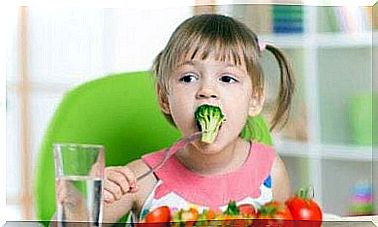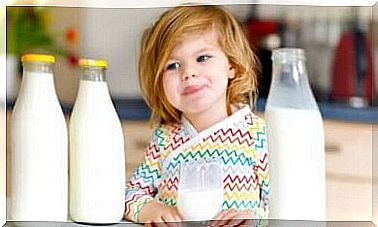Can Plant-based Drinks For Babies And Children Replace Milk?
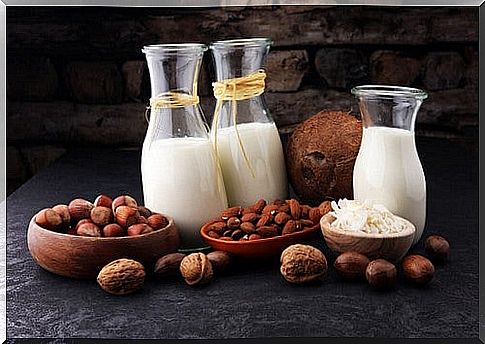
Nowadays the market has a wide offer of plant-based drinks for babies, children and adults. They can be consumed to increase the variety of the diet or as replacement products in case of allergy to cow’s milk proteins (APLV).
Are vegetable drinks comparable to cow’s milk?
From a nutritional point of view they cannot be considered as milk substitutes, since, depending on the vegetable source, their composition varies substantially. Despite this, it is important to emphasize that it is not essential to replace milk, since it is not a fundamental food in the diet.
Milk is a food rich in calcium, proteins and fats, but the latter vary according to the version consumed. In this sense, in the various vegetable drinks one macronutrient or another predominates depending on the source from which they are obtained.
Drinks made from cereals or pseudocereals, such as rice or oat drinks, are high in carbohydrates. Others, such as those based on legumes, are rich in proteins. Finally, there is a third group, obtained from oily fruits or dried fratta, such as coconut or almonds, which are distinguished by their high fat content.
It follows, therefore, that the vegetable drink most similar to cow’s milk is that of soy enriched with calcium. It offers a similar amount of protein, fat and calcium.
Vegetable drinks for infants
During the first six months of life, breast or formula milk is the infant’s main food. Although the World Health Organization recommends opting for breast milk, it is not always possible.
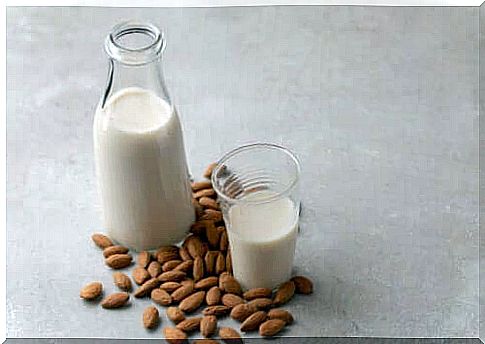
Mastitis (inflammation of the mammary glands) is a very common ailment and sometimes leads to abandoning breastfeeding. At this point one has to ask: which formula milk is suitable if the family wants to opt for a vegan lifestyle?
Parents may decide to use a vegetable drink even when the newborn is allergic to cow’s milk proteins, a very common condition. In a study conducted by the allergy service of a hospital in Madrid, Spain, the incidence of this allergy in newborns was calculated to be 1.9%. What is the right intervention protocol in these cases?
Vegan diet
The vegan diet in children is perfectly compatible with healthy growth, as long as it is well planned, as indicated by the main scientific associations.
There are many reasons that can push parents to move for or against this eating style, but in both cases their choice must be respected.
The vegan diet does not involve the consumption of foods of animal origin, therefore traditional formula milk is excluded. For families who opt for formula feeding, there are soy and rice preparations suitable for vegan babies.
For babies under six months, soy milk must be isoflavone-free; that of rice must be hydrolyzed to reduce its arsenic content to a minimum.
From six months of age, the baby can consume soy preparations with isoflavones. At a later time, from the age of two upwards, it is possible to include vegetable drinks in the child’s diet.
However, it is essential that the vegan diet is well planned and supervised by a dietician-nutritionist or pediatrician with expertise in the field.
Allergy to cow’s milk proteins
In case of allergy to cow’s milk proteins, all that remains is to eliminate the aforementioned proteins. In this regard, one can act in two ways depending on the type of breastfeeding the baby receives.
If the baby is breastfed by the mother, the mother will have to eliminate milk proteins in her diet. He will therefore have to refrain from eating all dairy products and check his levels of calcium and vitamin D. To know the necessary quantities of these micronutrients, it is helpful to calculate the previous consumption of the same.
Once the individual demand for calcium has been established, without forgetting that it increases during breastfeeding, it is necessary to enhance its consumption through foods that are rich in it.
When it comes to formula-fed infants, there are several possibilities, some of which are even funded by the government. Hydrolyzed milk is the main alternative in these cases. For children who cannot tolerate it, there is milk with a formula based on soy and rice; however, the indications given in the previous paragraph must be kept in mind.
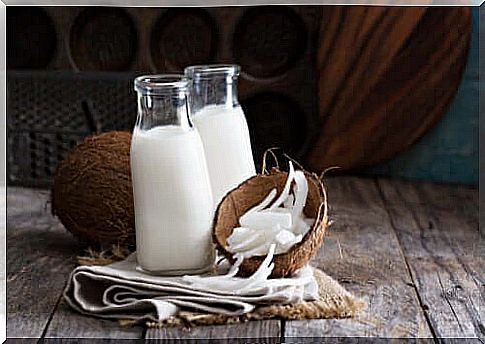
From the age of two, formula milk can be replaced by enriched vegetable drinks. In this case, it is necessary to evaluate the protein content of the diet to be sure of satisfying the nutritional needs of the child.
How to choose plant-based drinks for babies?
To choose between the various options, check the label on which the nutritional values of the product are shown. As with cow’s milk, even vegetable drinks do not have great variety between the different brands. It is therefore necessary to take into account:
- The quantity of raw material contained, which will be indicated in the form of a percentage.
- Further clarification on the other ingredients:
-
- Whether it is a source enriched with micronutrients or not. Generally micronutrients such as calcium and vitamin D are added, because they are naturally present in cow’s milk.
-
- The quantity of added sugars, which must not exceed 4-5 grams per 100 grams of product.
-
- If the product has been subjected to procedures to reduce its costs, such as adding different raw materials. For example, some coconut drinks have a high percentage of rice.
-
- To achieve a fat content equal to that of cow’s milk, vegetable oils can be added. If added in small quantities, it is irrelevant and does not affect the quality of the diet.
